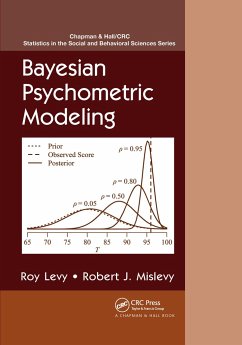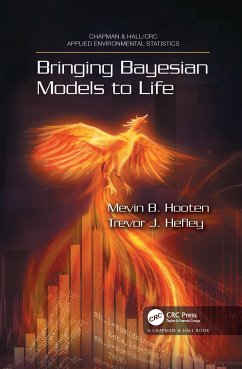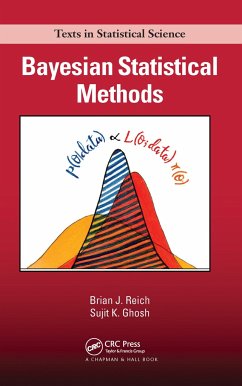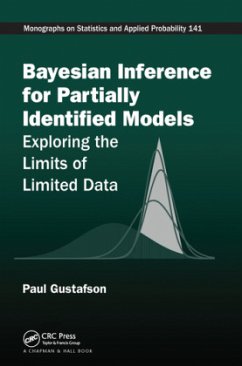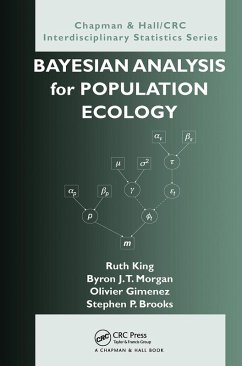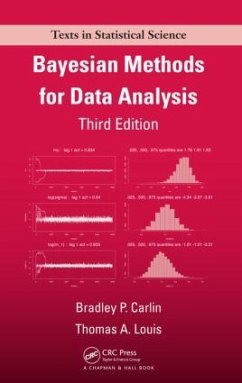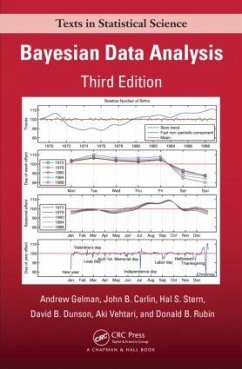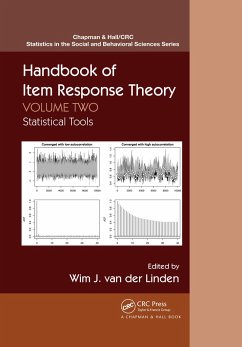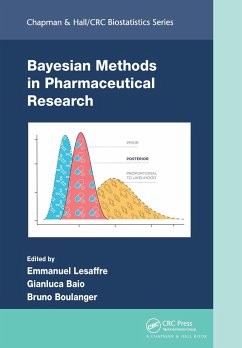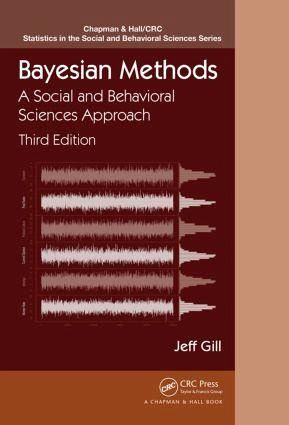
Bayesian Methods
A Social and Behavioral Sciences Approach, Third Edition
Versandkostenfrei!
Versandfertig in 6-10 Tagen
81,99 €
inkl. MwSt.
Weitere Ausgaben:

PAYBACK Punkte
41 °P sammeln!
An Update of the Most Popular Graduate-Level Introductions to Bayesian Statistics for Social ScientistsNow that Bayesian modeling has become standard, MCMC is well understood and trusted, and computing power continues to increase, Bayesian Methods: A Social and Behavioral Sciences Approach, Third Edition focuses more on implementation details of the procedures and less on justifying procedures. The expanded examples reflect this updated approach.New to the Third EditionA chapter on Bayesian decision theory, covering Bayesian and frequentist decision theory as well as the connection of empirica...
An Update of the Most Popular Graduate-Level Introductions to Bayesian Statistics for Social Scientists
Now that Bayesian modeling has become standard, MCMC is well understood and trusted, and computing power continues to increase, Bayesian Methods: A Social and Behavioral Sciences Approach, Third Edition focuses more on implementation details of the procedures and less on justifying procedures. The expanded examples reflect this updated approach.
New to the Third Edition
A chapter on Bayesian decision theory, covering Bayesian and frequentist decision theory as well as the connection of empirical Bayes with James-Stein estimationA chapter on the practical implementation of MCMC methods using the BUGS softwareGreatly expanded chapter on hierarchical models that shows how this area is well suited to the Bayesian paradigmMany new applications from a variety of social science disciplines Double the number of exercises, with 20 now in each chapterUpdated BaM package in R, including new datasets, code, and procedures for calling BUGS packages from R
This bestselling, highly praised text continues to be suitable for a range of courses, including an introductory course or a computing-centered course. It shows students in the social and behavioral sciences how to use Bayesian methods in practice, preparing them for sophisticated, real-world work in the field.
Now that Bayesian modeling has become standard, MCMC is well understood and trusted, and computing power continues to increase, Bayesian Methods: A Social and Behavioral Sciences Approach, Third Edition focuses more on implementation details of the procedures and less on justifying procedures. The expanded examples reflect this updated approach.
New to the Third Edition
A chapter on Bayesian decision theory, covering Bayesian and frequentist decision theory as well as the connection of empirical Bayes with James-Stein estimationA chapter on the practical implementation of MCMC methods using the BUGS softwareGreatly expanded chapter on hierarchical models that shows how this area is well suited to the Bayesian paradigmMany new applications from a variety of social science disciplines Double the number of exercises, with 20 now in each chapterUpdated BaM package in R, including new datasets, code, and procedures for calling BUGS packages from R
This bestselling, highly praised text continues to be suitable for a range of courses, including an introductory course or a computing-centered course. It shows students in the social and behavioral sciences how to use Bayesian methods in practice, preparing them for sophisticated, real-world work in the field.





